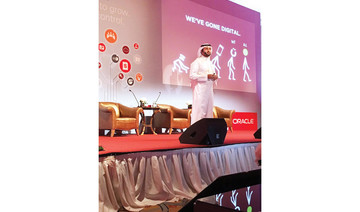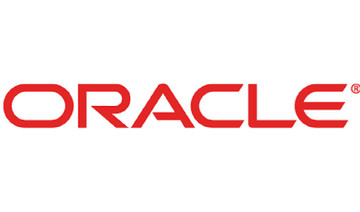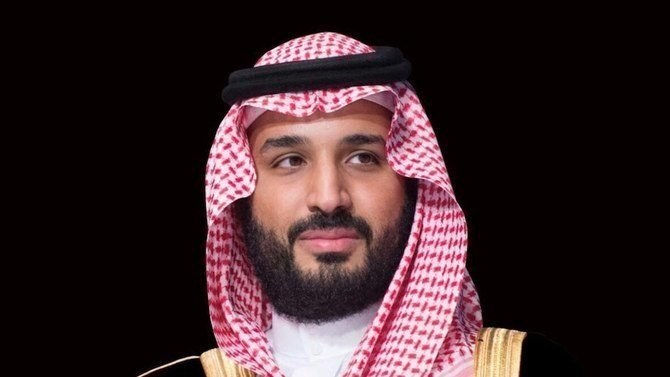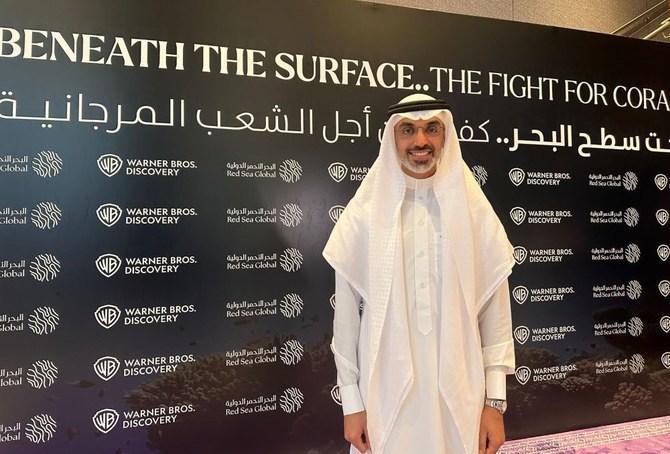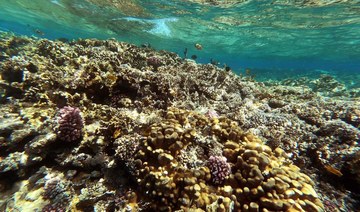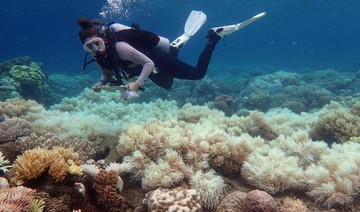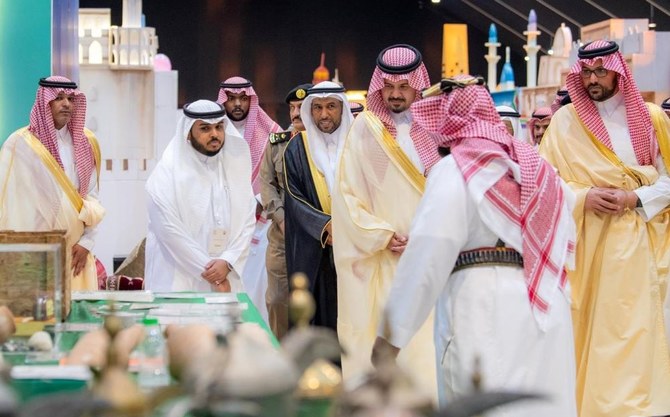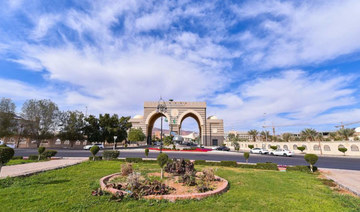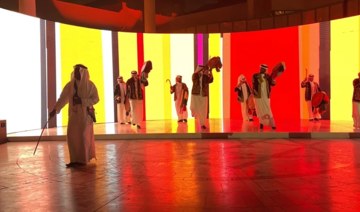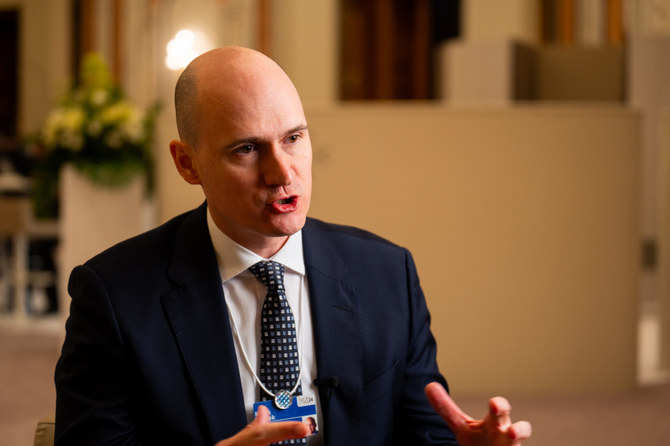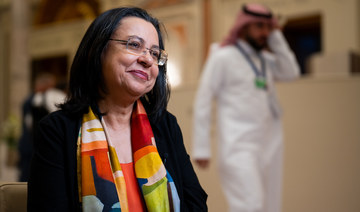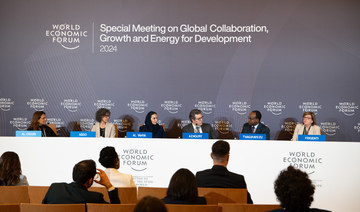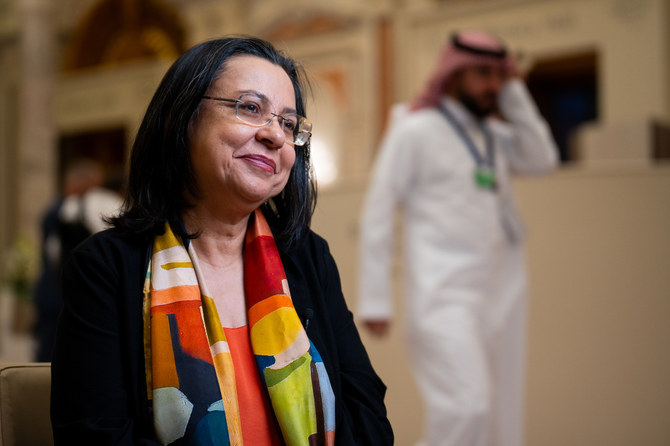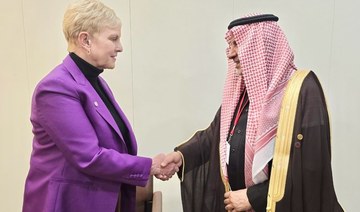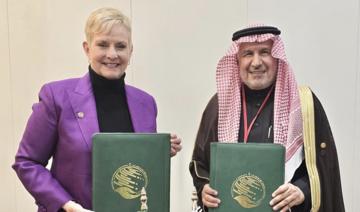JEDDAH: Oracle, the world’s leading provider of enterprise cloud computing, specializing in the development of database software, enterprise software and cloud engineered systems, hosted a Modern Business Forum (MBF) in Jeddah on Wednesday.
The day-long forum, held at the Ritz-Carlton hotel, offered keynote presentations by senior Oracle executives and partners, and was attended by representatives of leading Saudi corporations, entrepreneurs, and businesspeople alike.
The MBF emphasized intelligent cloud applications, integrated cloud platforms, the Internet of things (IoT), blockchain technology, and how artificial intelligence (AI) as a whole can help Saudi businesses accelerate their production growth into the 21st century, shifting their business structure and transforming to a cloud-based operating system.
Oracle’s technology in AI, machine learning, augmented reality, blockchain, IoT, and human interface technologies are, by their own construct, designed to allow customers the ability to take integrated technology and make advances within their individual business products and services.
A pioneer in IoT platforms, Oracle is using enterprise AI in conjunction with IoT to assist customers in managing their physical assets, while boosting employee productivity in the process. The Oracle Cloud system possesses the most innovative of capabilities, including: Software as a service (SaaS), platform as a service (PaaS), infrastructure as a service (IaaS), and data as a service (DaaS), empowering businesses of all types and sizes onwards in their journey toward digital transformation.
As Saudi Arabia continues to diversify its economy through its Vision 2030 agenda, digital transformation is at its core. Neom, the Kingdom’s $500 billion transnational mega-city is expected to heavily incorporate innovative technology, such as: Nano, 3D printing, IoT devices, electric and self-driving vehicles, robotics, and renewable energy.
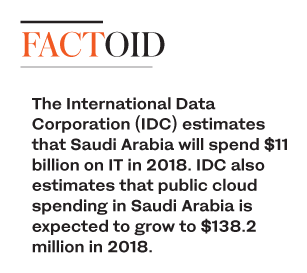 Oracle Vice President for Business Applications Kamel Tawil spoke exclusively and at length with Arab News on Wednesday on the multifaceted benefits of Oracle’s integrated cloud software.
Oracle Vice President for Business Applications Kamel Tawil spoke exclusively and at length with Arab News on Wednesday on the multifaceted benefits of Oracle’s integrated cloud software.
“We believe we are at the forefront of technology. We are really driving innovation in both the public and private sectors, and we are very excited to be in Saudi Arabia because the whole country is transforming within all industries, and we are honored to provide value and contribution to this country,” he said.
“With the evolution of artificial intelligence, sensor-based technology, and big data, we are looking at a different kind of application that will guide you on what to do. Predictive intelligence will now merge together between robotics and software to provide you with the next best action. So today the application can guide you, tell you, and help you in making the right decisions.”
The forum touched upon some interesting survey data relating to Saudi Arabia. PricewaterhouseCoopers (PwC), a multinational strategy consulting and data analytics firm, has predicted that AI will add $15 trillion to the global economy by 2030, even though few companies are currently pursuing serious AI implementations within their businesses.
In fact, according to McKinsey Consulting Co., only 20 percent of AI-aware firms are currently adopters of this technology. PwC reports that the Middle East is expected to accrue 2 percent of the total global benefits of AI by 2030, equivalent to $320 billion. The largest of these gains is expected in Saudi Arabia, where AI is expected to contribute more than $135.2 billion, equivalent to 12.4 percent of gross domestic product.
“This conversion of technology, artificial intelligence, big data, and connectivity, is really disrupting business modules. We have companies that disappeared and new companies that are taking over, such as these taxi service companies that own zero taxis — they have changed the whole landscape of transportation,” Tawil continued. “The implications of that are really going beyond technology itself, and are really disturbing and changing very old industries.
“We believe artificial intelligence is the next big thing. We believe artificial intelligence coupled with big data, connectivity, and sensor technology is going to change the way we work.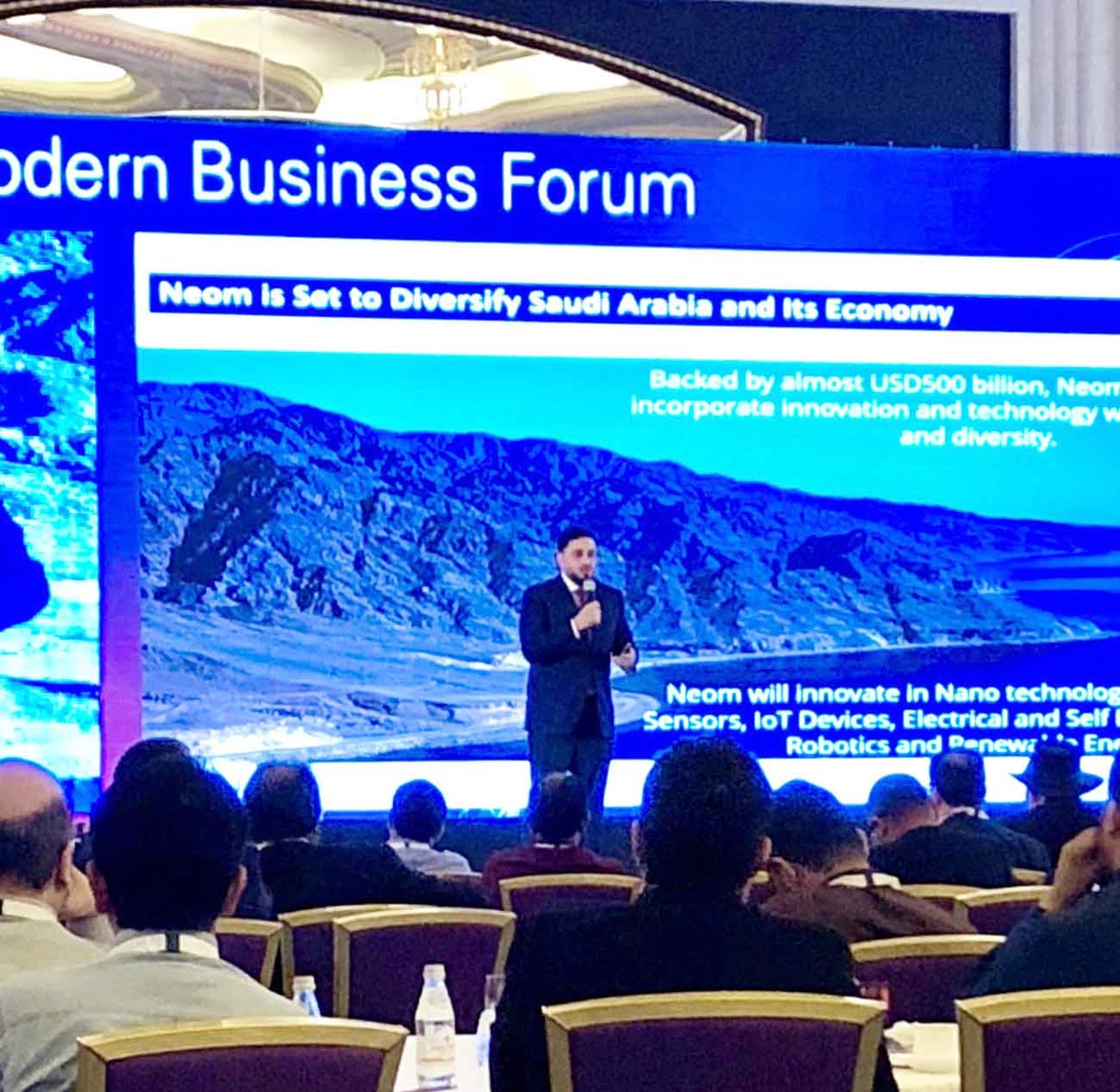
“We at Oracle are really innovating around our enterprise applications, and around our databases. Our latest offering is our autonomous database. Usually, when you have a database you need to have a database administrator to manage it, but with our autonomous technology, this database can update itself, freeing valuable time and resources to do other important tasks.”
As for what fields Oracle sees its technology thriving most in, Tawil, who opened the forum with an executive welcome speech, believes it directly revolves around Saudi Arabia’s Vision 2030.
He said: “One of the key initiatives is how to diversify the sources of income. In my view, I would say that the application of Oracle technologies can be really great in two key fields. One is through really empowering the government and changing the public sector into a more customer-focused, efficient, and progressive sector. We have many initiatives and are working with many government entities in that regard. Secondly, which is key, is fueling innovation in the private sector. How can we bring the next wave of entrepreneurs, the next wave of smart companies, who can contribute to the diversified economic growth of Saudi Arabia?”
When looking into specific industries, the International Data Corporation forecasted in 2018 that spending in Saudi Arabia will be the highest in the public sector, financial services, health care, education and manufacturing.
Oracle has already been present in Saudi Arabia for more than 30 years, and across all major cities in the Kingdom. Oracle’s consistent growth within Saudi Arabia is driven by the success of its customers and this growth has now been further enhanced by the rapid adoption of cloud solutions.
“We have great customer examples in Saudi Arabia. We have large companies who have embraced our cloud, so really that drive toward the cloud is really fueling our own company growth,” Tawil remarked.
A few examples of leading Saudi organizations that were mentioned in Wednesday’s MBF that have incorporated Oracle Cloud in their operating systems include Saudi Telecom Company, NADEC, ACWA Power, Nahdi Medical, and Zahran Holding Co. All have chosen Oracle Cloud solutions, and all have seen major transformative projects achieve growth and improve efficiency.
This long-term commitment from Oracle within Saudi Arabia has translated into massive investments, helping organizations of all sizes, both public and private, achieve strategic objectives with digital transformation. Recently, Oracle announced plans to open a data center in the Kingdom, further expanding its footprint by introducing its latest cloud solutions and creating a vigorous support infrastructure. It hopes to implement a series of programs and initiatives aimed at driving digital skills among the Saudi youth and better preparing them for the digital economy that will be at the forefront of Saudi Arabia in 2030.
“We are really living in very exciting times, where all these technologies are now converging, and really producing positive effects in the way we are living, working, and interacting,” Tawil said.
Oracle’s own transition to a cloud-first company had garnered plenty of discussion in the IT world — both from optimists and skeptics. “When the whole cloud concept got introduced, we really embraced it and transferred all of our applications into cloud-based. We introduced our fusion application, which is the only pure end-to-end cloud-based application available today,” added Tawil.
“Now, with the new advancement of cloud-based technologies, the technology is available for anyone. If you are a startup company, before implementing an IT system you needed to wait one or two years; now in a couple of weeks you can have access to the same system that is used by some of the largest companies in the world. You don’t need to invest in infrastructure. You don’t need to invest in building that data center. You just buy the service and you are up and running.”
It is important to note that a common misconception of emerging technologies, such as AI, is that they are a threat to existing jobs. “The machines are taking over,” although a common narrative, is hardly factually based. On the contrary, new technology truly thrives when it succeeds in creating the time and space for new jobs.
Automation is all about speeding up the mundane tasks that often take up valuable time for businesses. Innovative technology is often geared at achieving greater profitability through efficiency and, in so doing, enables employees to focus on more valuable tasks. It is about improving people’s decision-making capabilities by empowering them with highly relevant and effective technology, along with timely data, that otherwise would not be possible to collect.
They are the necessary tools that Oracle aims to provide toward a bright and “cloudy” business future for Saudi Arabia.



